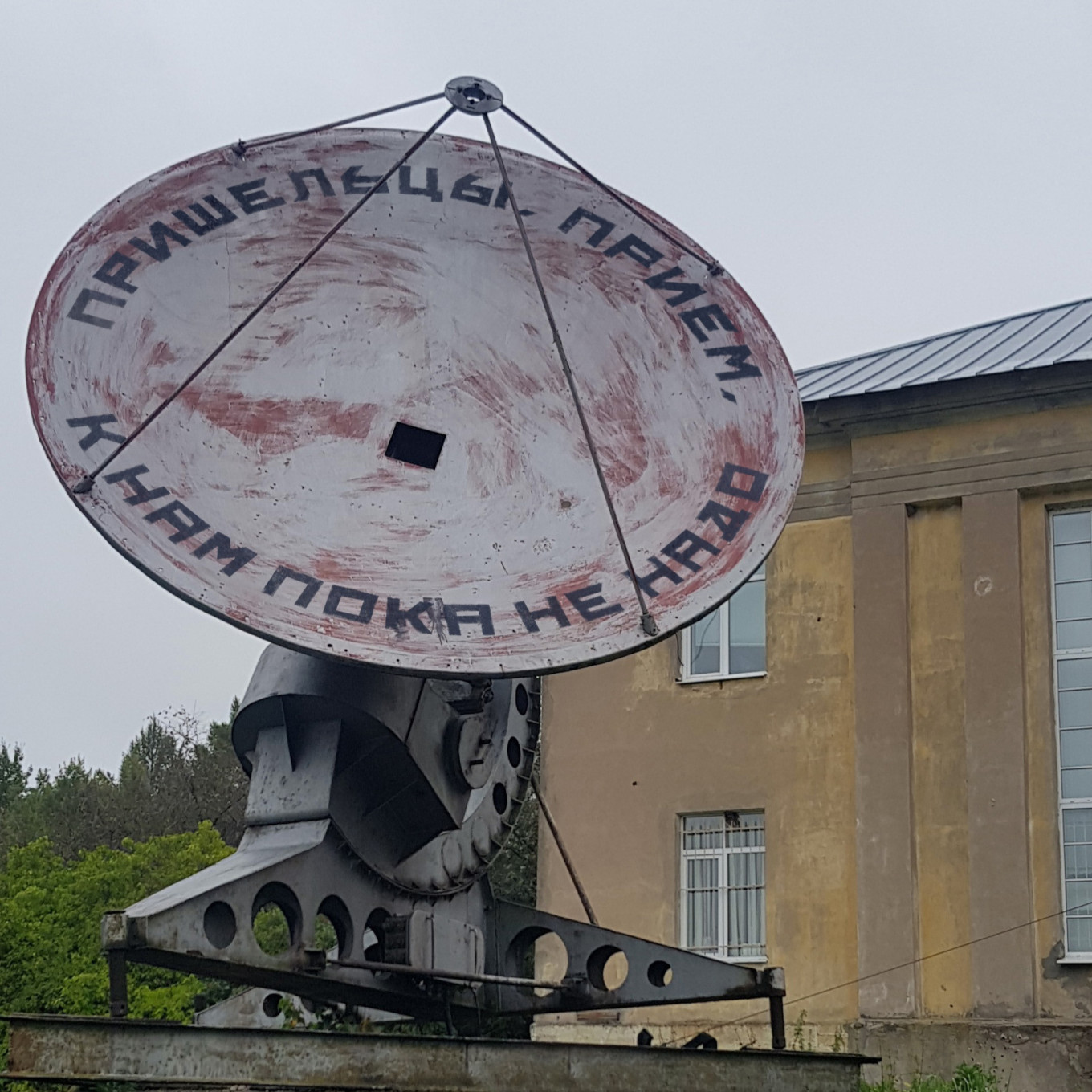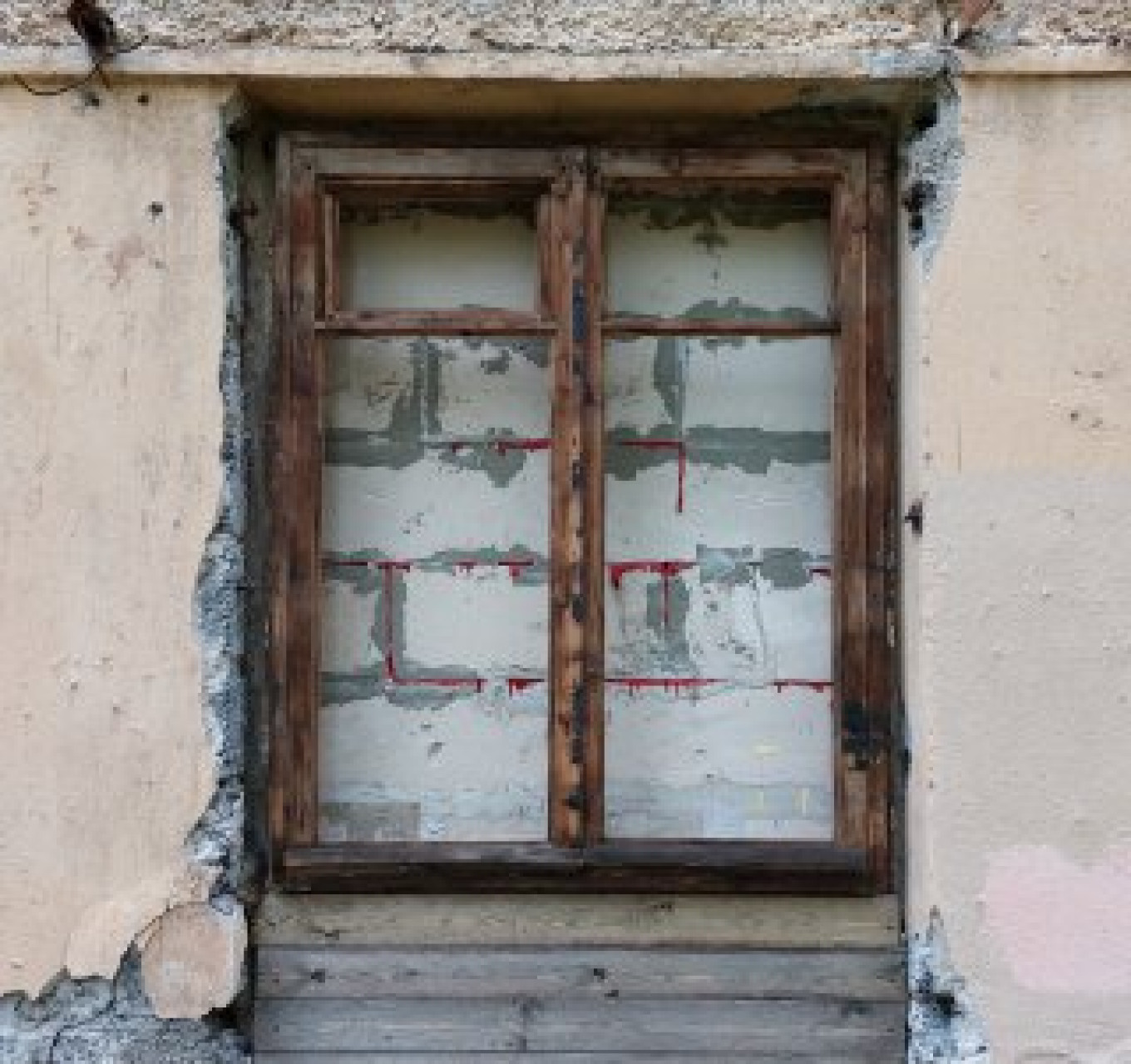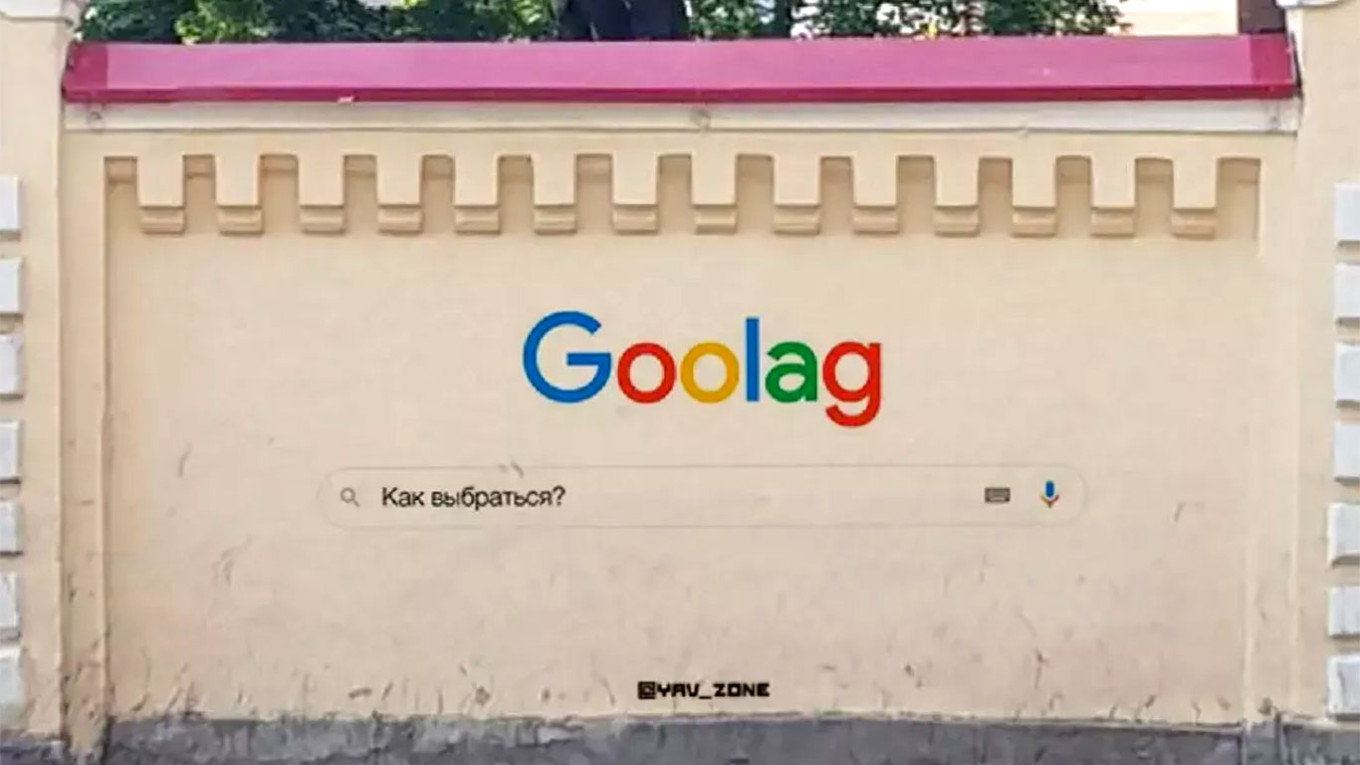A bridge separating two brother is set on fire in a short video, one of the latest works by the art group Yav. The art event was held on National Unity Day, which is celebrated in Russia on Nov. 4. Fans of the art group immediately understood this artistic performance as a direct reference to Russia's invasion of Ukraine.
After February, one of the group’s members temporarily left Yav for security reasons, and today Anastasia Vladychkina, the leader and founder, is the sole permanent member. But different people help her to create works.
Anastasia became interested in politics in the 8th grade, and since then there isn’t a day that goes by that doesn’t start with a deep dive into the news. Since 2014, she has been dedicated to freely expressing her opinion and contributing to the development of civil society. And so she founded the art group Yav, which means “reality” in Russian.
“Street art is not a form; it is a frame,” Vladychkina told The Moscow Times. “Most of our works are paintings on walls because they are easier and cheaper to make. But we also create 3D art objects, alternative and virtual reality, videos, performances, and immersive performances,” she said.

Knowledge is power
Vladychkina said that her knowledge of Russian law helped her before Feb. 24, but today everything has changed. “I know that according to the law there is nothing in our works that would justify either an administrative fine or a criminal case. I know the procedure, my rights, how to appeal everything, but if Russia were a rule-of-law state, there would be more guarantees,” she said.
Before February, the members of the art group chose to paint on walls that many people could see. They never painting on buildings that had architectural or historical value; usually they painted on a transformer substation or a tenement building.
After February, they began to work on fences or abandoned buildings, where there would be less chance of a fine. Since then they only did two works, and while doing one of them — which included the word GULAG — they were detained by the police. Everybody was fined 500 rubles for petty hooliganism.
Vladychkina said that they have not been kept in detention or mistreated. To the contrary, the police often seem reluctant to take the artists in. There was even a case when the police came on a call but didn’t detain them because the person who called them refused to go to the station with them. Without the complaint, the police could do nothing.
Several times when the police found performances and work by the Yav group on social networks, they subscribed to the channel or joked with them, inviting artists to draw on the walls of their precincts. “I think that the policemen who work at demonstrations and the policemen who go on calls are different people,” Vladychkina said.

The leader of the art group does not hide her name, believing that anonymity becomes part of a person’s reputation, and most of the time everyone knows who the artist is anyway. “Nowadays each artist must determine for himself whether he is ready to be in jail for his works. Unfortunately, this could happen. But so far no artist has been put in jail for street art. There are cases where people have been charged for the words 'war,' but they were written by activists. Street artists like us create metaphorical works.”
A Message from The Moscow Times:
Dear readers,
We are facing unprecedented challenges. Russia's Prosecutor General's Office has designated The Moscow Times as an "undesirable" organization, criminalizing our work and putting our staff at risk of prosecution. This follows our earlier unjust labeling as a "foreign agent."
These actions are direct attempts to silence independent journalism in Russia. The authorities claim our work "discredits the decisions of the Russian leadership." We see things differently: we strive to provide accurate, unbiased reporting on Russia.
We, the journalists of The Moscow Times, refuse to be silenced. But to continue our work, we need your help.
Your support, no matter how small, makes a world of difference. If you can, please support us monthly starting from just $2. It's quick to set up, and every contribution makes a significant impact.
By supporting The Moscow Times, you're defending open, independent journalism in the face of repression. Thank you for standing with us.
Remind me later.






